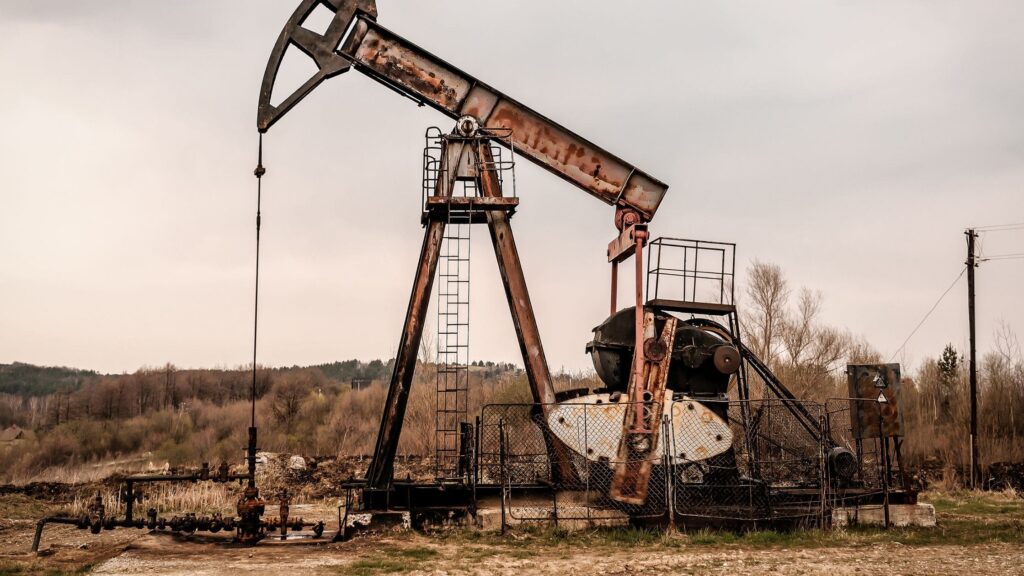How Do Mineral Rights Work in Michigan?

Understanding mineral rights in Michigan is essential for anyone involved in the real estate or natural resources sectors. These rights are a form of real property and pertain specifically to the subsurface extraction of minerals like oil, gas, and coal. In Michigan, mineral rights can be sold, leased, or transferred independently of the land itself. This means a property owner can possess the surface rights to their property while another party may hold the rights to the minerals beneath.
Surface Rights vs Mineral Rights in Michigan
In Michigan, the distinction between surface rights and mineral rights is significant. Surface rights allow the property owner to manage the use of the land above ground. In contrast, mineral rights grant the holder the authority to explore, extract, and utilize the minerals found below the surface. The separation of these rights can often lead to disputes, especially if not clearly defined in property deeds. Understanding this separation is crucial for anyone owning land or looking to invest in Michigan’s mineral-rich territories.
What are Major Oil and Gas Fields in Michigan?
Michigan is home to several notable oil and gas fields, each playing a pivotal role in the state’s contribution to the national energy sector. These fields are scattered across the state, from the northern reaches of the Lower Peninsula to the central agricultural heartlands. Here’s an overview of the major oil and gas fields in Michigan:
Antrim Gas Field
This natural gas field, located in the Northern Lower Peninsula, particularly in Otsego and Montmorency counties, is one of Michigan’s most significant. It primarily extracts gas from the Antrim Shale formation.
Niagaran Reef Field
Spread across multiple counties in the state, this extensive field produces both oil and gas from ancient coral reefs buried deep below the surface. Notable areas include counties like Cheboygan and Presque Isle.
Albion-Scipio Field
Situated along the southern edge of the state in Hillsdale and Calhoun counties, this field has been one of Michigan’s primary sources of oil since its discovery in the 1950s.
Prairie du Chien Gas Field
Located in the central region of the Lower Peninsula, this field taps into a deep, ancient geological formation for natural gas, particularly around the central counties like Clare and Isabella.
Trenton-Black River Field
This prolific field in southern Michigan, particularly around Jackson and Lenawee counties, is known for both oil and natural gas production, tapping into the deeper Trenton Formation limestone.
Richfield Field
Located in Roscommon County, this field is known for its production of both oil and natural gas. It taps into the geological layers that are part of Michigan’s central basin.
Dundee Field
Situated in the southeastern part of Michigan, especially in Monroe County, this field primarily produces oil from the Dundee Limestone formation.
Port Austin Field
This field in Huron County, at the tip of the Thumb region, produces gas from formations that are less commonly exploited in other parts of the state.
Muskegon Field
Found on the western side of Michigan, near Muskegon County, this field is significant for its production of natural gas, utilizing the deeper Silurian-aged formations.
St. Clair Field
Located near St. Clair County in eastern Michigan, this field is primarily known for extracting natural gas.
What are Main Minerals Found in Michigan?
Michigan’s geological landscape is abundant with a variety of minerals, which are integral to the state’s history and economic development. Here is a list of key minerals typically found across Michigan, each with a brief description:
- Iron Ore: Predominantly mined in the Upper Peninsula, iron ore is a critical component of Michigan’s mineral production, feeding the steel industry.
- Copper: Known historically as part of the “Copper Country” in the Upper Peninsula, Michigan’s copper deposits are among the largest in the world.
- Nickel: Also found in the Upper Peninsula, nickel is often co-extracted with copper and is used in numerous alloys.
- Salt: Extensive salt mines under Detroit have been in operation since the 19th century, supplying much of the Midwest with road salt.
- Gypsum: Found mainly near Grand Rapids, gypsum is used to make plaster of Paris and other plaster products.
- Limestone: Abundant in the Lower Peninsula, limestone is used in construction, and for making cement and lime.
- Sand and Gravel: These materials are mined throughout Michigan and are essential for construction and road building.
- Coal: Although less prominent than in the past, coal mining has been an important part of Michigan’s industrial landscape.
How Do I Find Out Who Owns Mineral Rights in Michigan?
Determining who owns the mineral rights to a property in Michigan requires understanding both historical and current property records. Here’s how you can find out:
- Identify the Property: Locate the specific parcel of land for which you want to determine mineral rights ownership.
- Visit the County Register of Deeds: Go to the office of the register of deeds in the county where the property is located.
- Request Property Records: Ask for the chain of title for the parcel, which includes all recorded documents related to property ownership and rights.
- Review Deeds and Leases: Examine the deeds to see if and when mineral rights were severed from the surface rights. Check any existing leases for information on current mineral rights usage.
- Consult with a Lawyer: If the documents are complex or unclear, consider consulting with a lawyer who specializes in mineral rights.
How to Search for Mineral Rights Records in Michigan?
To search for mineral rights records specifically, follow these steps:
- Start at the County Register of Deeds: This is where all property rights documents are recorded.
- Request Historical Deeds: Ask for access to all deeds associated with the property, going back to the original land grants if possible.
- Look for Severance of Rights: Specifically, look for any deeds where the mineral rights may have been severed from the surface rights.
- Check for Mineral Leases: Review any mineral leases associated with the property, as these may indicate active mineral rights usage.
- Use Online Resources: Some counties may have records available online, which can be a preliminary resource before visiting the register of deeds.
How Do I Claim Mineral Rights in Michigan?
Claiming mineral rights in Michigan involves a series of defined steps, ensuring the legal acquisition or confirmation of these rights over a specific parcel of land. Here are the essential steps to take:
- Research Property History: Begin by investigating the history of the property to understand past ownership and any transfers of mineral rights. This step can involve reviewing historical deeds and records at the local county Register of Deeds.
- Check Current Ownership: Ascertain the current ownership status of both surface and mineral rights. This information is typically available through the county Register of Deeds.
- Legal Consultation: Consult with a lawyer who specializes in property or mineral rights law in Michigan to ensure all legal aspects are correctly handled, including the interpretation of deeds and understanding any existing claims.
- File a Claim: If mineral rights are unclaimed or available, file a formal claim with the county. This process requires completing specific legal documents and paying any associated fees.
- Negotiate Agreements: If the mineral rights are owned by another party, you may need to negotiate purchase or lease agreements to legally extract minerals.
- Record the Claim or Agreement: Any agreement or claim must be officially recorded with the county to establish legal ownership or rights to the minerals.
How Does Mineral Rights Inheritance Work in Michigan?
Inheriting mineral rights in Michigan follows specific legal protocols to ensure the transfer of ownership from the deceased to their heirs or designated beneficiaries. This process is deeply tied to the broader handling of an estate after someone passes away.
- Will and Probate: If the deceased left a will, the mineral rights are transferred according to the will’s provisions, typically handled through probate court. The executor of the estate will manage this transfer.
- Without a Will: If there is no will, mineral rights are distributed according to Michigan’s laws of intestate succession. This can be more complex, especially if the rights are not explicitly mentioned in estate planning documents.
- Consideration of Joint Ownership: In cases where mineral rights are held jointly, rights may pass directly to the surviving owner without probate.
- Legal Validation: Legal steps must be taken to validate the inheritance claim, including updating property records and possibly re-registering the deed to reflect the change in ownership.
Do You Have to Pay Taxes on Mineral Rights in Michigan?
Yes, in Michigan, owners of mineral rights are required to pay taxes on the value of these rights, whether they are producing income or not. Here’s how this typically works:
- Property Taxes: Mineral rights are considered real property, and as such, they are subject to property taxes. The assessed value of the mineral rights contributes to the total property value for tax purposes.
- Income Taxes: If the mineral rights generate income through activities like oil or gas production, the revenue is also subject to state and federal income taxes.
- Example: For instance, if you inherit mineral rights worth $100,000 and the rights produce oil generating $10,000 annually, you would pay property taxes on the $100,000 assessed value and income taxes on the $10,000 income.
Understanding these tax implications is crucial for anyone owning or inheriting mineral rights in Michigan, as it affects both the ongoing cost of holding these rights and the financial benefits derived from them.
How Much Are Mineral Rights Worth in Michigan?
Determining the value of mineral rights in Michigan involves several factors, including the type of minerals, market demand, and the potential for resource extraction. This section provides an overview of the average value of mineral rights, considering various stages of development and production.
How Much Are Mineral Rights Worth Per Acre in Michigan?
The value of mineral rights per acre in Michigan can vary significantly based on location, mineral type, and market conditions. On average, mineral rights can range from $500 to $5,000 per acre. This broad range reflects the diverse geological features of Michigan, from the oil-rich regions of the Lower Peninsula to the mineral-packed areas of the Upper Peninsula.
Leasing Mineral Rights Value
Leasing mineral rights can be a lucrative option for property owners. The value of leasing mineral rights depends on the lease terms, such as royalty rates and lease duration, and the type of mineral. Typically, lease agreements provide a royalty percentage, ranging from 12% to 20% of the gross production value, to the mineral rights owner.
- Example: If a leased property produces oil that generates $100,000 annually in sales, and the royalty rate is 15%, the mineral rights owner would earn $15,000 per year from the lease.
Non-Producing Mineral Rights Value
Non-producing mineral rights, or mineral rights on properties that are not currently being extracted for minerals, hold speculative value. This value is based on the potential for future development and is typically lower than that of producing mineral rights. These rights may be valued based on geological surveys, previous regional production records, and projected commodity prices.
- Potential Value Assessment: For non-producing rights, the assessment might consider the presence of resources like gypsum or limestone, common in Michigan, and evaluate their potential market demand.
Producing Mineral Rights Value
Producing mineral rights, where active extraction is occurring, tend to have the highest value. The valuation is directly tied to the current and anticipated revenue from the extracted minerals.
- Calculation Method: The value is often calculated by estimating the total amount of producible minerals, the rate of extraction, market prices, and the operational lifespan of the mine or well.
- Example: In a scenario where a well produces 100 barrels of oil per day, and the current market price is $50 per barrel, the daily revenue would be $5,000. The value of these mineral rights would be assessed based on this revenue, projected over the expected operational period, minus the extraction and management costs.
How Do You Buy Mineral Rights in Michigan?
Buying mineral rights in Michigan can be a strategic investment, but it requires careful navigation through legal and regulatory landscapes. Here are actionable and logical steps to help guide you through this process:
- Research Potential Properties: Identify areas in Michigan where you are interested in buying mineral rights. Use geological surveys and mineral maps to pinpoint regions rich in the resources you are targeting.
- Property Ownership Verification: Confirm who currently owns the mineral rights you wish to purchase. This information can be found at the local county Register of Deeds.
- Evaluate the Mineral Rights: Assess the value of the mineral rights with the help of experts. This might include hiring a geologist or a mining engineer to evaluate the potential yield of the minerals.
- Negotiate Terms: Once a potential property is identified, negotiate the terms of the purchase with the current mineral rights owner. Consider factors like price, transfer fees, and any specific conditions of the sale.
- Legal Due Diligence: Conduct thorough legal checks to ensure there are no existing liens or disputes over the mineral rights. It’s advisable to work with a lawyer who specializes in mineral rights and property law in Michigan.
- Close the Deal: Finalize the purchase through a legal sales agreement. Ensure that all documents are properly filed with the appropriate county’s Register of Deeds to officially transfer ownership.
How To Sell Your Mineral Rights in Michigan?
Selling mineral rights in Michigan involves several key steps to ensure that the transaction is legally sound and beneficial. Here’s what you need to do:
- Value Assessment: Have your mineral rights appraised by a professional to determine their market value. This will help in setting a realistic price and understanding the taxes that may apply upon sale.
- Market the Mineral Rights: You can either market the rights yourself by listing them on mineral rights-specific platforms or hire a broker who specializes in mineral transactions.
- Vet Potential Buyers: Screen interested buyers to ensure they have the financial capability and intent to follow through with the purchase.
- Negotiate the Sale Terms: Work out the details of the sale, including the price, any royalties to be retained, and the terms of the transfer.
- Prepare the Deed: The transfer of mineral rights must be documented in a deed that clearly outlines the rights being transferred. This deed should be prepared by a legal professional.
- Close the Transaction: Finalize the sale by signing the deed in the presence of a notary. Record the deed with the county Register of Deeds where the property is located to make the transaction official.
How Do I Transfer Mineral Rights in Michigan?
Transferring mineral rights in Michigan involves a series of legal steps that ensure the rights are legally passed from one party to another. Below are the actionable and logical steps to follow when transferring mineral rights:
- Verify Ownership: Confirm that you legally own the mineral rights you intend to transfer. This may require reviewing deeds and records at the county Register of Deeds.
- Valuation: It’s often advisable to have the mineral rights appraised to determine their market value. This helps in setting a fair price and understanding tax implications.
- Draft a Mineral Deed: A mineral deed is necessary to legally transfer ownership of the rights. This document should specify exactly what is being transferred and under what conditions.
- Hire a Lawyer: Engage a lawyer who specializes in mineral rights and property law in Michigan to ensure the deed complies with state laws and to address any potential legal issues.
- Sign and Notarize the Deed: Both the seller and buyer must sign the deed in the presence of a notary to authenticate the document.
- Record the Deed: File the signed and notarized deed with the county Register of Deeds where the property is located. This public recording formalizes the transfer.
- Notify Interested Parties: Inform all parties who have an interest in the property, such as lessees or other rights holders, about the transfer of ownership.
- Handle Tax Implications: Consult a tax professional to understand and manage any tax liabilities associated with the transfer of mineral rights.
Conclusion
Understanding and navigating the process of buying, selling, or transferring mineral rights in Michigan requires careful attention to legal details and procedural steps. Whether you are dealing with producing or non-producing mineral rights, the value and management of these rights can significantly impact both the landowner and the developer. With the right knowledge and resources, you can effectively manage mineral rights transactions to ensure they meet legal standards and align with your investment goals. Always consider consulting with professionals in legal, tax, and geological fields to support your decisions in the dynamic landscape of mineral rights in Michigan.
FAQ
Do Mineral Rights Expire in Michigan?
No, mineral rights in Michigan do not expire by mere passage of time. However, they can be terminated through specific legal actions such as a quitclaim deed, or if a mineral lease expires without production or extraction activities and is not renewed. Ownership of mineral rights remains valid until legally changed or relinquished.
What Happens to Michigan Mineral Rights When Someone Dies?
When a mineral rights owner in Michigan passes away, the rights are transferred to the heirs or specified beneficiaries as dictated by the deceased’s will. If there is no will, the rights pass according to state intestacy laws. It’s crucial for the new owners to update the deed at the county Register of Deeds to reflect this change in ownership.






